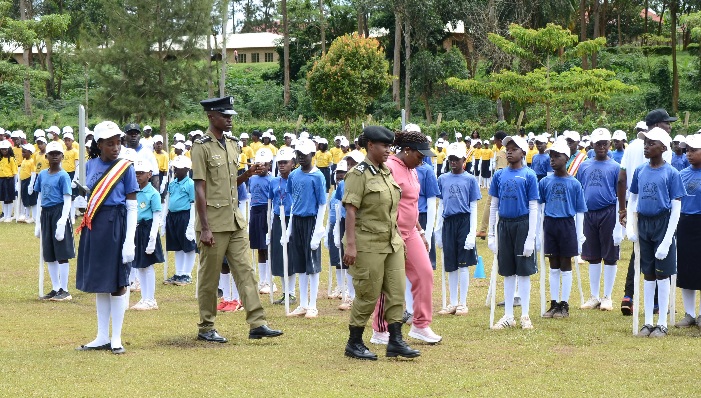Most schools have closed for the third term holiday, welcoming vacationers and holidaymakers, except for S6 students currently wrapping up their final exams. As the much-anticipated holiday season unfolds, many have planned various activities.
This period necessitates heightened vigilance from parents, guardians, caretakers, and local leaders regarding the safety of children. Whether at home, workplaces, neighborhoods, or during travel and visits, prioritizing children’s safety is crucial. As the holidays commence, here are some tips for parents, guardians, and concerned citizens to ensure a secure and enjoyable break.
1. Discuss boundaries. During the holidays, more friends and family members may be around, and some might express affection by hugging, playing, tickling, or having your child sit on their lap. Empower your children to confidently say NO to any unwanted touches, pictures, favors, etc., whether from adults or other children. Ensure your child understands that some actions from other children may be inappropriate or unsafe.
If your child (or any other child) says “NO” or ”STOP,” their decision and boundaries must be respected by everyone.
2. Pay attention to signs of Child Abuse. Often, adults overlook children’s feelings, especially when the accused is a family member, trusted friend, or someone deemed incapable of harming a child. Shockingly, 90% of child victims are sexually abused by familiar individuals, with 70% being family members. Be aware that abuse can also occur between children, necessitating vigilance regarding their relationships and activities.
Pay attention to minor details such as a child’s reluctance to greet elders, and foster open communication through your language. Your child relies on you for safety. If something seems amiss, ask questions, follow up, and take action. Your commitment to your child’s well-being is paramount.
Parents should spend quality time with their children, avoiding sending them away for holidays, as some families keep incidents of incest silent due to shame. Be vigilant for signs of homosexuality or changes in behavior, and address any issues promptly. Additionally, be aware of the potential for drug abuse among children.
3. Teach your children to avoid keeping secrets. Abusers often use secrets to silence children, labeling it as their “little secret.” Educate children that secrets usually involve unsafe or negative things. Teach your child that if anyone, be it an adult or another child, asks them to keep a secret, they should immediately inform you or a trusted adult.
Communicate with domestic workers, about the importance of reporting any concerns involving relationships with the children. Encourage an open line of communication to ensure the safety and well-being of your child.
4. Limit one-on-one situations. Limit alone-time between your child and other adults whenever possible. Seek opportunities for interruptible and observable interactions, drop by unannounced, and interview your children upon your return.
About 80% of sexual abuse occurs in one adult-one child situations, so reducing these scenarios is crucial for your child’s protection. Be aware that one-on-one time between children can also pose risks, with around 30% of child sexual abuse cases involving another child.
Establish early and ongoing two-way communication with your child, creating an environment where they feel comfortable coming to you with questions. Parents should ensure the relationship and environment foster open dialogue for the well-being of the child.
5. Manage your stress as parents
Sometimes, the increased commitment and financial demands, impact on families during holidays leading to short tempers and possibly physical abuse of a child. It is advised to take a breather (some sort of time out for adults), to de-stress and calm down, when you feel out of control, call a friend and ask for support, etc.
6. Discuss age – age-appropriate safety issues with your child, in a calm, non-fearful manner. Let your child know that it is not what people look like that makes them unsafe but what they ask a child to do.
7. Make sure your child knows your cell phone number.
8. Let’s guide our children to be God-fearing by incorporating family joint prayers, encouraging self-reliance, and teaching them to seek God’s guidance for problem-solving. Spiritual upliftment plays a vital role in their moral upbringing.
Parents, consistently monitor the content your children consume on TV, phones, tablets, etc. It greatly influences their development.
Additionally, instill a sense of responsibility by teaching them household chores like mopping, sweeping, and animal care.
As Joint Security Agencies, we wish your child and your entire family a safe and joyful school holiday.
ACP Claire Nabakka
Deputy Police Spokesperson
28th November, 2023




